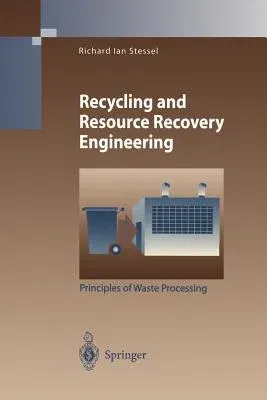Richard I Stessel
(Author)Recycling and Resource Recovery Engineering: Principles of Waste Processing (Softcover Reprint of the Original 1st 1996)Paperback - Softcover Reprint of the Original 1st 1996, 30 December 2011

Qty
1
Turbo
Ships in 2 - 3 days
In Stock
Free Delivery
Cash on Delivery
15 Days
Free Returns
Secure Checkout
Part of Series
Environmental Engineering
Part of Series
Environmental Science and Engineering
Part of Series
Environmental Science and Engineering / Environmental Engine
Print Length
263 pages
Language
English
Publisher
Springer
Date Published
30 Dec 2011
ISBN-10
3642802214
ISBN-13
9783642802218
Description
Product Details
Author:
Book Edition:
Softcover Reprint of the Original 1st 1996
Book Format:
Paperback
Country of Origin:
NL
Date Published:
30 December 2011
Dimensions:
23.39 x
15.6 x
1.5 cm
Genre:
Ecology
ISBN-10:
3642802214
ISBN-13:
9783642802218
Language:
English
Location:
Berlin, Heidelberg
Pages:
263
Publisher:
Series:
Weight:
394.63 gm

